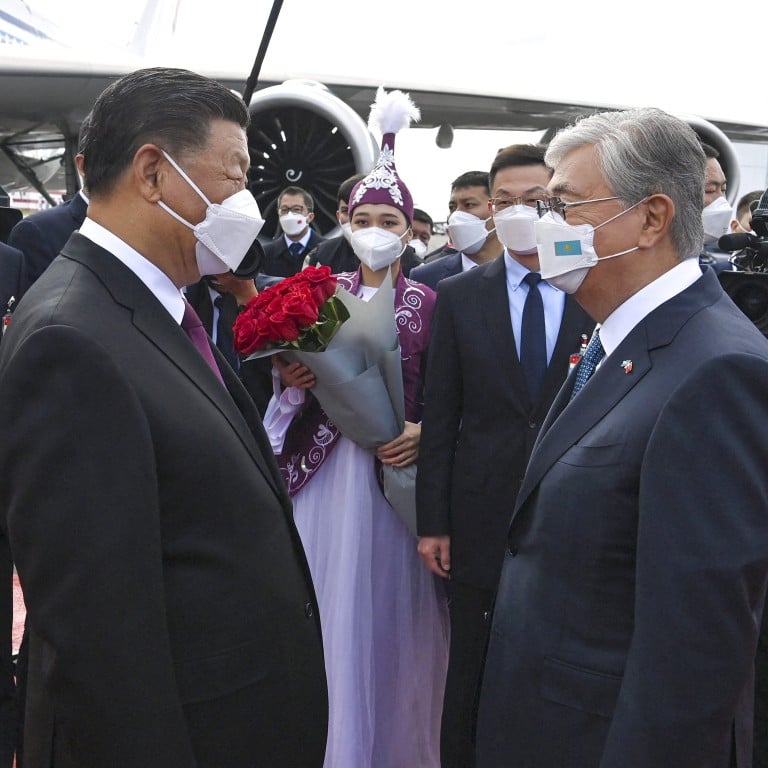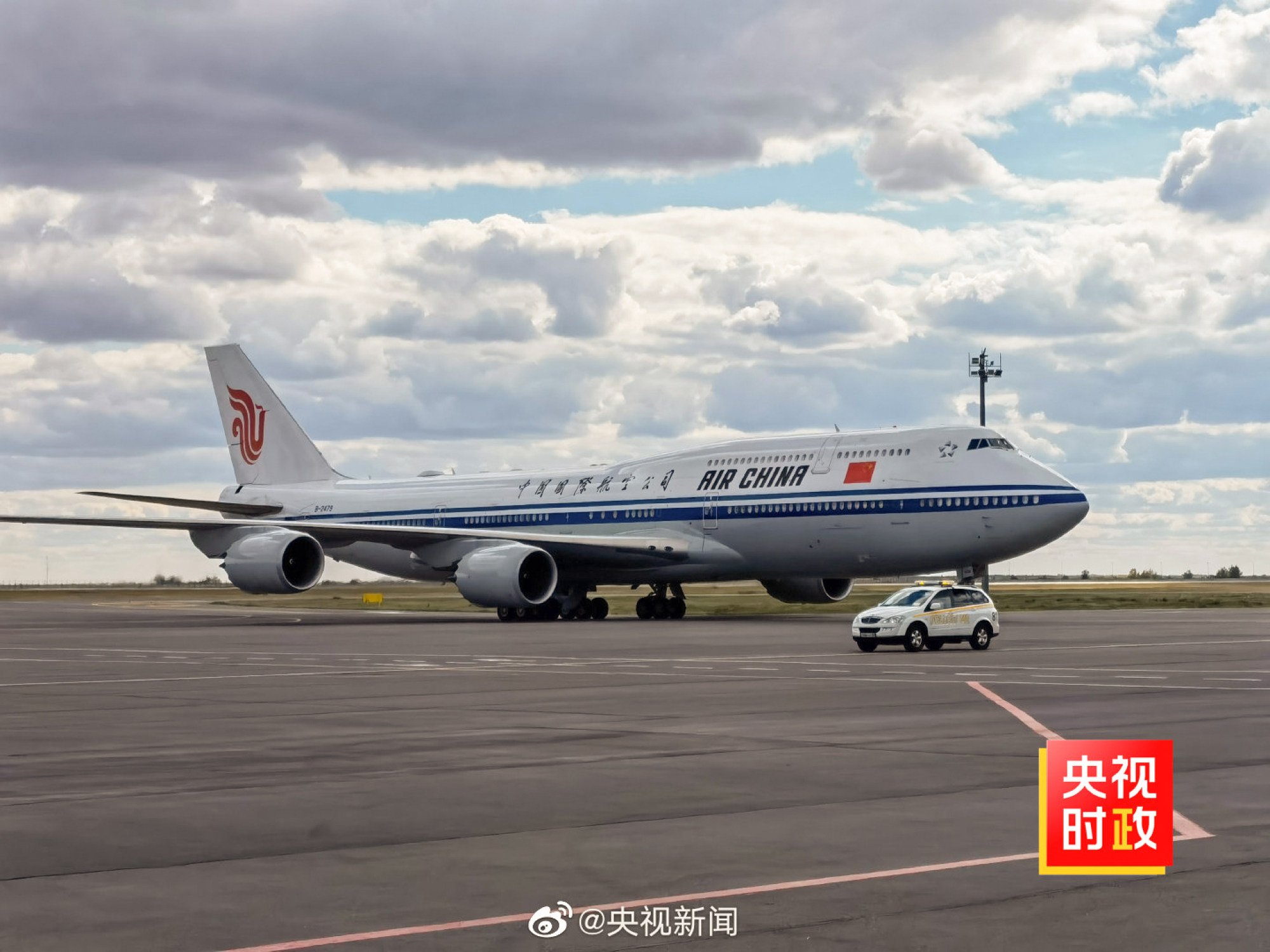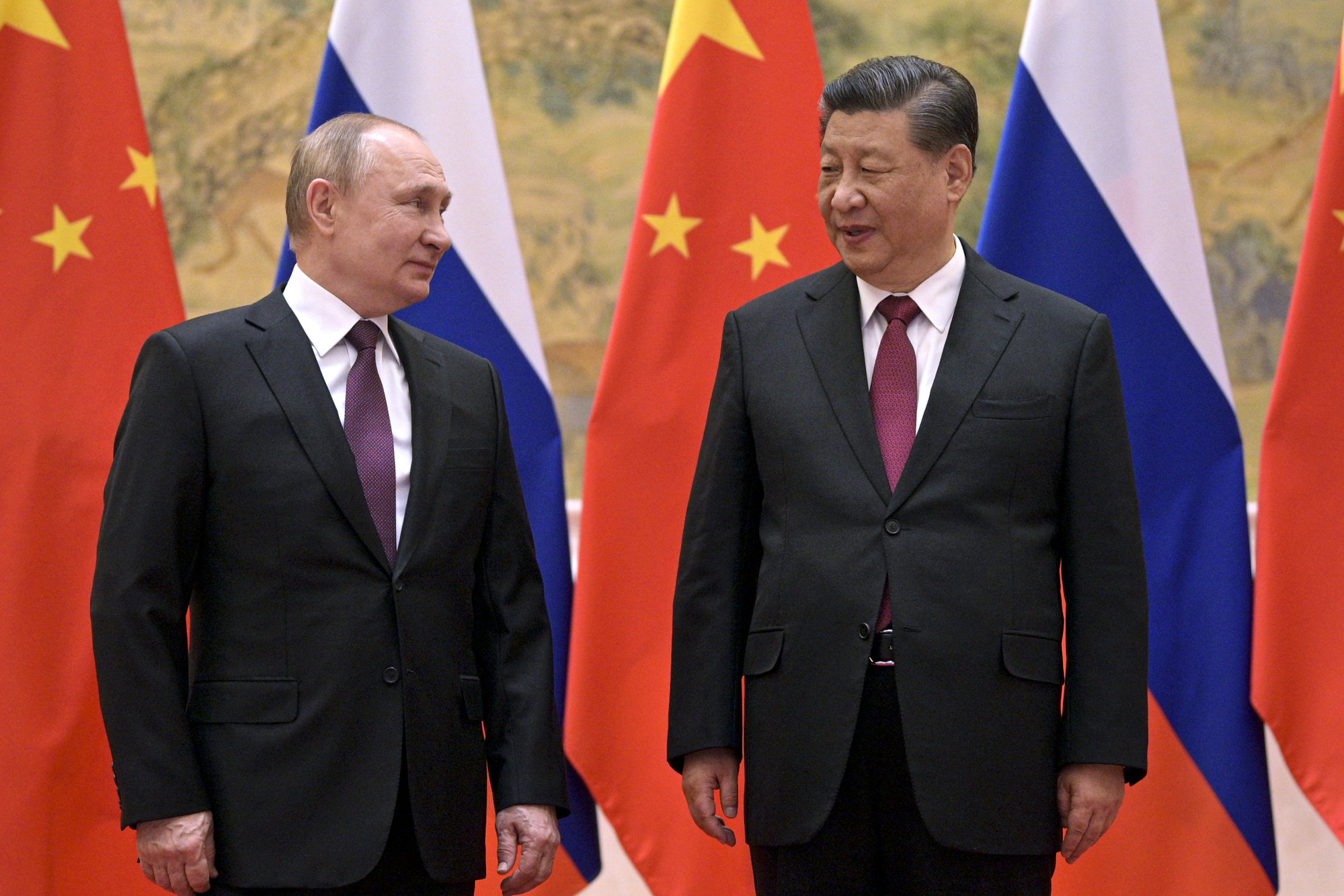
Chinese President Xi Jinping arrives in Kazakhstan on first trip abroad since pandemic began
- China’s leader will also travel to Uzbekistan for a Shanghai Cooperation Organisation summit
- He is expected to meet Russian counterpart Vladimir Putin on the sidelines of the SCO talks
A video released by the Kazakh presidential press office showed Xi being welcomed by an honour guard and received by President Kassym-Jomart Tokayev after his charter plane touched down at the Nursultan Nazarbayev Airport in Kazakhstan’s capital Nur-Sultan. Xi was individually greeted by Tokayev and other Kazakh officials. China’s first lady Peng Liyuan was not seen alongside Xi.
According to Xinhua, Xi’s entourage included Ding Xuexiang, one of his senior aides, foreign policy chief Yang Jiechi, Foreign Minister Wang Yi and He Lifeng, head of the National Development and Reform Commission, China’s top economic planning agency.
All those involved in the reception, including Xi and Tokayev, were shown wearing masks in the video.
According to a press statement from Kazakhstan’s presidential office, Tokayev and Xi held a meeting on Wednesday afternoon during which the two sides discussed “cooperation in the transport, logistics and agro-industrial sectors, and also considered the issue of using transboundary water resources”.

An earlier statement said the two were expected to sign bilateral agreements after discussing “prospects for strengthening the Kazakh-Chinese comprehensive strategic partnership”.
According to China’s state broadcaster CCTV, Xi told Tokayev that China firmly supports Kazakhstan in “safeguarding national independence, sovereignty and territorial integrity”.
He said: “[We] firmly support the reform measures the president has taken to maintain national stability and development, and firmly oppose any forces that interfere in Kazakhstan’s internal affairs.”
Xi is expected to meet Russian President Vladimir Putin on the sidelines of the Shanghai Cooperation Organisation (SCO) summit in the Uzbek city of Samarkand, which begins on Thursday. Leaders of the Beijing-led Eurasian bloc of eight countries are meeting to discuss political, economic and regional security cooperation.

The meeting with Putin has been confirmed by the Kremlin and the Kazakh government. Preventing unpredictable “black swan” events in the current political cycle could be high on the agenda, according to Wan Qingsong, associate research professor at East China Normal University’s Centre for Russian Studies in Shanghai.
“Only by ensuring security in their common neighbouring region – Central Asia and [especially] Afghanistan – could China and Russia pay attention to their more prominent security and development issues,” Wan said.
He also expected Xi and Putin to announce measures to strengthen the energy supply chain that could shift the trade flow of energy commodities in Eurasia from Europe towards China.
Putin’s foreign affairs adviser, Yuri Ushakov, said on Tuesday China had taken a “well-balanced approach to the Ukrainian crisis”. Putin and Xi would “thoroughly” discuss the war and economic cooperation in their meeting, he said.
During his trip, Xi will also discuss issues of regional and international importance with Tokayev and Uzbek leader Shavkat Mirziyoyev, China’s foreign ministry said on Tuesday.
Ministry spokeswoman Mao Ning told reporters that Xi’s trip was the most important before the party’s twice-a-decade congress in October.
Chinese leader prepares for high-stakes Putin meeting
Kazakhstan’s ambassador to China, Shakhrat Nuryshev, told Chinese state broadcaster CGTN that a series of documents had been prepared for signing during Xi’s visit, including an outline for the development of ties in the next three decades and an agreement on economic and trade cooperation.
In an opinion piece for the Kazakhstanskaya Pravda newspaper on Tuesday, Xi said China and Kazakhstan were ready to strengthen political and security cooperation and develop new areas of economic growth, such as artificial intelligence and digital finance.
The Chinese leader also called for “better synergy” with Uzbekistan’s development strategies and for more high-level exchanges to improve political trust in a separate piece published in Uzbek media, including the state-backed Narodnoye Slovo newspaper. Xi described China and Uzbekistan as “good brothers supporting each other in times of need”.
“With the Ukraine war … and potential instability in China’s western region, the SCO and Central Asian countries have become more important in the eyes of China,” he said.
Most Central Asian countries had a policy of balancing their ties with Russia, China and the US, he said. The fact that more Chinese investment and infrastructure had made inroads into those nations and their governments’ distancing from Moscow on the Ukraine war meant Beijing’s role in the region was increasing, Zhu said.
Additional reporting by Kawala Xie

